 00:46:00
00:46:00
Paul Dirac and the religion of mathematical beauty
For the great theoretical physicist Paul Dirac FRS, the importance of mathematical beauty was 'like a religion'. Although his first papers on quantum mechanics showed an acute aesthetic awareness, he first set out his principle of mathematical beauty....
More details | Watch now 01:04:00
01:04:00
What if…? Coping with uncertainty in health science
Panel discussion involving Tracey Brown, Professor Angela McLean FRS, Professor Andrew Stirling and chaired by Professor David Spiegelhalter OBE FRS. How can we make decisions that affect our health when scientific advice is never 100% sure? Wha....
More details | Watch now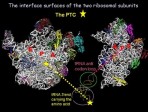 01:03:00
01:03:00
From bears’ winter-sleep to advanced antibiotics
Professor Ada Yonath, Weizmann Institute of Science, Israel. To facilitate instant recovery of active life once bears wake up from their winter sleep, nature provides ingenious mechanism based on periodic packing of their ribosomes, the cellular ma....
More details | Watch now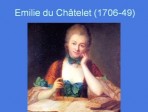 00:43:00
00:43:00
Ghosts of women past
Dr Patricia Fara, Clare College, Cambridge. "I do not agree with sex being brought into science at all. The idea of 'woman and science' is completely irrelevant. Either a woman is a good scientist, or she is not." So declared Hertha Ayrton over hun....
More details | Watch now 01:01:00
01:01:00
The end of the world in 2012? Science communication and science scares
21st December 2012 marks an ending of the Mayan calendar and is asserted by some to mark the end of the world. This scare is examined from an astronomical point of view, followed by some reflections on what the scare tells us about the communication ....
More details | Watch now 01:04:00
01:04:00
Nature’s glass: half-full or half-empty?
Andrew Balmford FRS is Professor of Conservation Science at University of Cambridge. The world’s governments failed to meet their pledge of reducing the rate of biodiversity loss by 2010. Wild populations, their habitats, and the benefits they pr....
More details | Watch now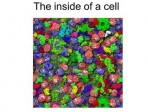 01:07:00
01:07:00
Finding patterns in genes and proteins: decoding the logic of molecular interactions
Dr Sarah Teichmann is based at the MRC Laboratory of Molecular Biology at the University of Cambridge. In the post-genomic era, high-throughput methods are providing us with a deluge of data about genes and proteins. What knowledge about biology do....
More details | Watch now 01:06:00
01:06:00
Sustainable materials: with both eyes open
Dr Julian Allwood is leader of the Low Carbon Materials Processing Group in the Department of Engineering at the University of Cambridge. One third of the world's carbon emissions are emitted by industry. Most industrial emissions relate to produci....
More details | Watch now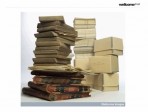 00:57:00
00:57:00
Wellcome’s collectors
Pharmacist, philanthropist – and Fellow of the Royal Society – Sir Henry Wellcome is now widely recognised as one of the most acquisitive of collectors during the late nineteenth and early twentieth centuries. But Wellcome’s collection of histo....
More details | Watch now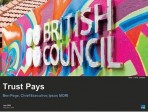 01:17:00
01:17:00
Trust Pays: how much does cultural exchange matter
Based on new international research undertaken with IPSOS Mori, the British Council's Trust Pays report considers questions such as How trusted is the UK? Does cultural exchange shape opinions of Britain? Does the level of trust have an impact on tra....
More details | Watch now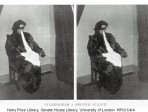 00:55:00
00:55:00
Spooks and spoofs: psychologists and psychical research in the inter-war years
Several physicist fellows of the Royal Society were interested in psychical research in the late nineteenth and early twentieth centuries. Between the wars, William McDougall FRS and other senior academic psychologists became involved with amateur ps....
More details | Watch now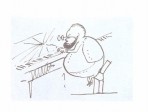 00:58:00
00:58:00
The Zoological World of Edward Lear
Clemency Fisher is Curator of Vertebrate Zoology at National Museums Liverpool. Edward Lear is most famous for his Nonsense Rhymes, such as “The Owl and the Pussycat” and “The Quangle Wangle’s Hat”, but he was also a talented zoological art....
More details | Watch now
